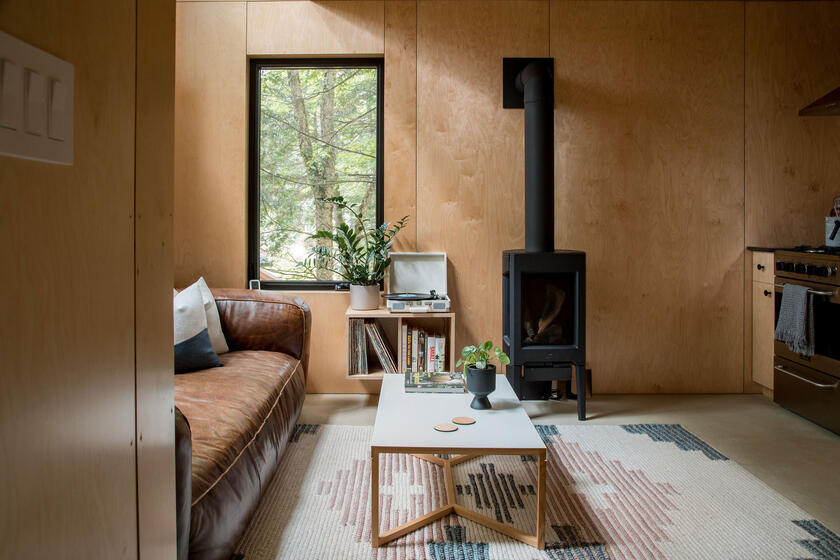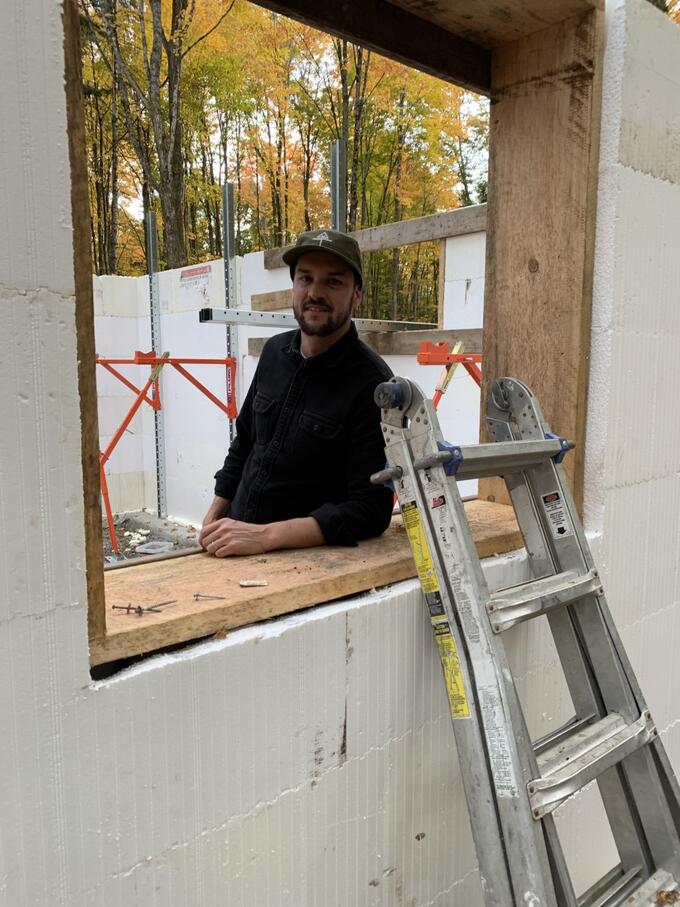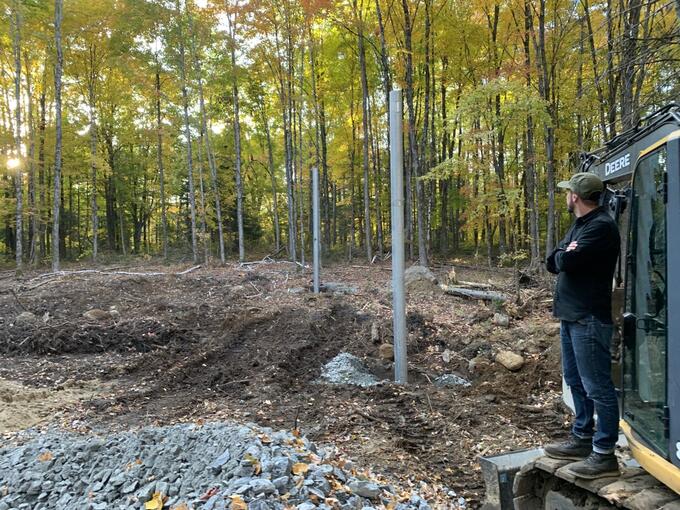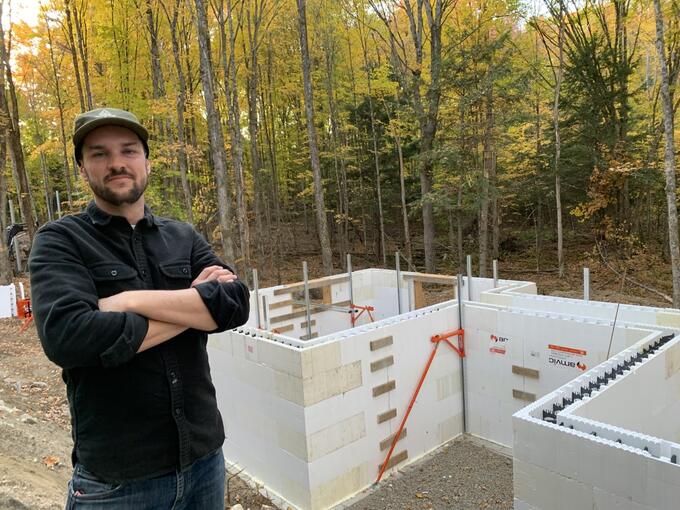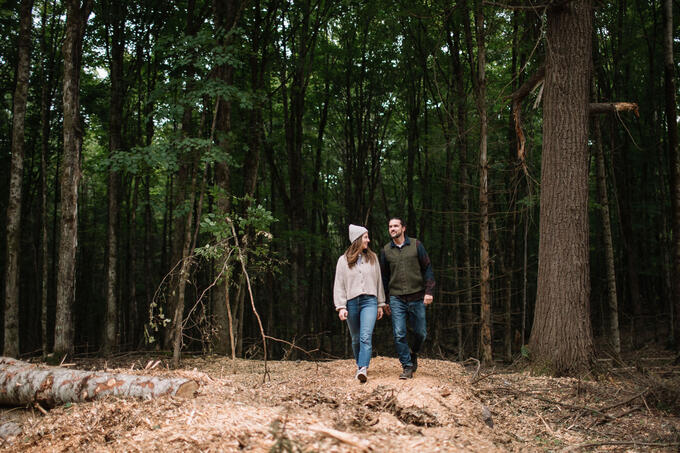Deep in the Dahl forest, among sky-high trees with leaves that turn bright yellow in the fall, Cam Green has been working on a dream. When it comes into fruition, his land will have been transformed into a uniquely Canadian forested micro-community.
Green, the owner of Fort Treehouse Co., is building a resort that will one day host six treehouses. And, thanks to support from the Regional Tourism Relief Fund Ontario’s Highlands, it will also have a welcome centre and solar panels to supply electricity so the village can remain off grid.
And, yes, you read that right. Green is building treehouses – for visitors to spend the night.
When complete, the business will be similar to many Ontario wilderness resorts, with the notable difference that with Green’s cabins, trees will provide the main foundation.
Green believes his treehouse community will provide a “quintessential Canadian experience” especially because the Minden location is situated among towering sugar maple trees. A drive into the 15-acre property (which is connected to the Haliburton Land Trust-maintained Dahl Forest) is a mystical experience. The height of the trees creates an almost dome-like atmosphere, enclosing you into a fresh-air environment, where the rustling of leaves and the chatter of squirrels are just about all you will hear.
“We hope to bring people back into the woods and to nature so they can appreciate that experience,” Green says.
Green runs the business with his wife, Lauren. They have two young children, who love to play in treehouses. Although they’re originally both from the 905 region, they also have roots in Haliburton County—they met there years ago while working at YMCA’s Camp Wanakita.
Green also previously lived on Vancouver Island, where he worked as a carpenter and built fine furniture. His love for building and for nature attracted him to the idea of building treehouses.
Green learned that treehouses as resorts were becoming popular in other places in the world, and he began to study how to make them. He attended the World Treehouse Conference in Oregon to learn more and also enrolled in the Sustainable Treehouse and Design Construction program at Yestermorrow Design/Build School in Vermont.
After the couple moved to Minden Hills, they built a prototype treehouse in their backyard and put it together in a way that guests could stay overnight. In the fall of 2022, Green was getting ready to build the first of three houses on the Geeza Road property. When they’re complete, he’ll add three more.
As far as he knows, the business will be the first “treehouse resort” in Canada. And, Green believes, the uniqueness of the project has helped it gain momentum.
The RTRF provides tourism entities with contributions of up to $100,000 for up to 50 percent of eligible costs for for-profit businesses (and 100 percent of eligible costs for not-for-profits), to support product development or enhancement of tourism experiences. The RTRF is supported by a Government of Canada investment of more than $3.6 million through the Federal Economic Development Agency for Southern Ontario (FedDev Ontario).
The funding is intended to support product development and enhancement of tourism experiences to help tourism businesses adapt to the “new normal,” modernize tourism offerings, and encourage the adoption of more environmentally sustainable practices.
Green’s treehouse project qualified to receive $60,000, which is offsetting the cost of two 12-panel arrays of solar panels. It’s also helping Green build the welcome centre, where guests can meet and mingle and maybe have a coffee. It will be like a hotel lobby, Green explains, adding he hopes the first treehouses will be up and hosting guests by fall of 2023.
Green’s hope is the treehouses will play a role in promoting Haliburton as a tourist destination.
“People often rent cottages because they’re on water,” Green says. “But, we find, there’s so much to do in the woods, like cross country ski, hike and bike.”
Green says the support he’s received from local people is incredible. When he tells people what he’s doing, people are often excited and surprised.
“We’ve had some people say it’s a lofty goal,” he adds. “But who doesn’t love a treehouse?”
About FedDev Ontario and the Tourism Relief Fund
Ultimate Recipients of the Regional Tourism Relief Fund received non-repayable contributions of up to $100,000 from Ontario’s Highlands Tourism Organization to adapt and recover, attract new visitors and drive economic growth in the area. This is part of an overall Government of Canada investment through the Federal Economic Development Agency for Southern Ontario (FedDev Ontario) of more than $78 million for 11 Regional Tourism Organizations and Indigenous Tourism Ontario.
